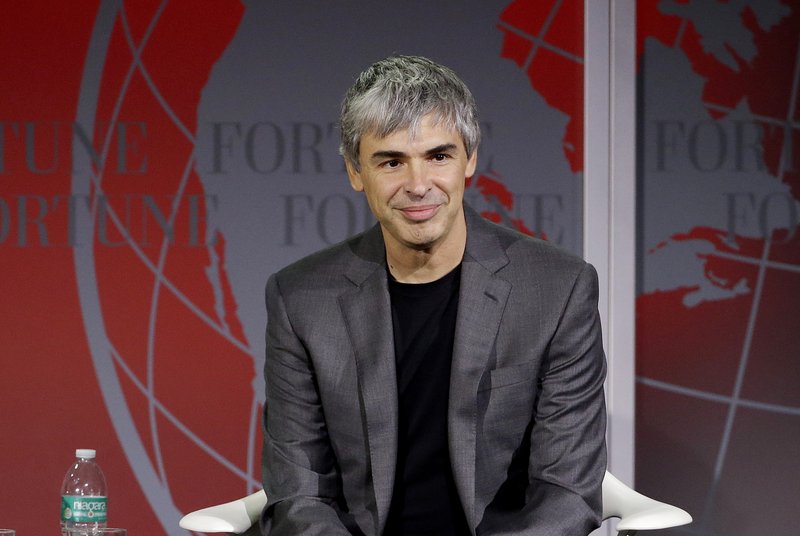SAN FRANCISCO -- The co-founders of Google are stepping down as executives of its parent company, Alphabet, ending a two-decade run during which Larry Page and Sergey Brin shaped a startup born in a Silicon Valley garage into one of the largest and most powerful firms in the world.
Sundar Pichai, who has been leading Google as chief executive officer for more than four years, will take on additional duties as Alphabet's CEO, the position held by Page. The company isn't filling Brin's position as president.
Brin and Page met as Stanford University graduate students in 1995 and started the company soon after. What started as a way to catalog the growing internet has now spread its influence around the globe.
Google dominates online search and digital advertising and makes the world's most widely used operating system for smartphones, Android. It has become difficult to avoid using one of Google's services -- such as email, cloud computing systems, phones and smart speaker hardware.
Page and Brin, in announcing the news Tuesday, said the company has "evolved and matured" in the two decades since its founding. Both promised to stay active as board members and shareholders.
"Today, in 2019, if the company was a person, it would be a young adult of 21 and it would be time to leave the roost," they wrote in a blog post.
Alphabet -- an umbrella corporation that the two created in 2015 -- still boasts Google as its central fixture and key moneymaker. But it's also made up of what are known as "other bets," or long-shot projects. That includes drone company Wing and self-driving car firm Waymo.
Page and Brin both have been noticeably absent from Google events in the past year. Both stopped making appearances at the weekly question-and-answer sessions with employees, and Page didn't attend this summer's Alphabet shareholders meeting even though he was still in the CEO role.
Alphabet has been positioning Pichai as the leader for quite some time. Pichai, 47, has worked at the company for 15 years, serving as a leader in projects to build the company's Chrome browser and overseeing Android. Pichai, who has an engineering background, took over as the head of Google's products before being promoted to CEO when Alphabet was created.
Longtime tech analyst Tim Bajarin of Creative Strategies said that for all intents and purposes, Pichai has been the public face and the most instrumental person inside Google for the past few years. Alphabet has made him the top executive voice at shareholders meetings, on earnings calls and as a spokesman at congressional hearings.
So far, the company has shown no signs that it intends to replace Pichai at Google. But Bajarin said doing so might make sense, given that Pichai will have so much on his plate as CEO of the overall business, including regulatory pressures from the U.S. and Europe.
Google is facing strong opposition from privacy groups that are concerned about the personal information that Google has collected on its users, mostly to target advertising. Google also faces complaints that it abuses its dominance in search and online advertising to push out rivals. Google is the subject of antitrust inquiries from Congress, from the Department of Justice, from a contingency of states in the U.S. and from European authorities.
The company has also faced criticism about the material on its sites -- and was hit with a $170 million fine because its video streaming site, YouTube, improperly collected personal data on children without their parents' consent.
In the short term, Bajarin doesn't expect much to change at the company. And if anything does, it will be due to government regulation -- not the executive shuffle, he said.
As for Page and Brin, Bajarin added, "keep in mind, they are not losing their title as billionaires, but they are changing their roles."
Brin and Page still hold more than 50% of the voting shares of Alphabet. According to a regulatory filing in April, Page holds 42.9% of the company's Class B shares and 26.1% of its voting power. Brin holds 41.3% of the Class B shares and 25.2% of the voting power.
Google has nearly doubled its headcount since Pichai took over as chief executive, growing from a company of 59,000 employees to 114,000 now.
Information for this article was contributed by Mae Anderson and Barbara Ortutay of The Associated Press.
Business on 12/04/2019
